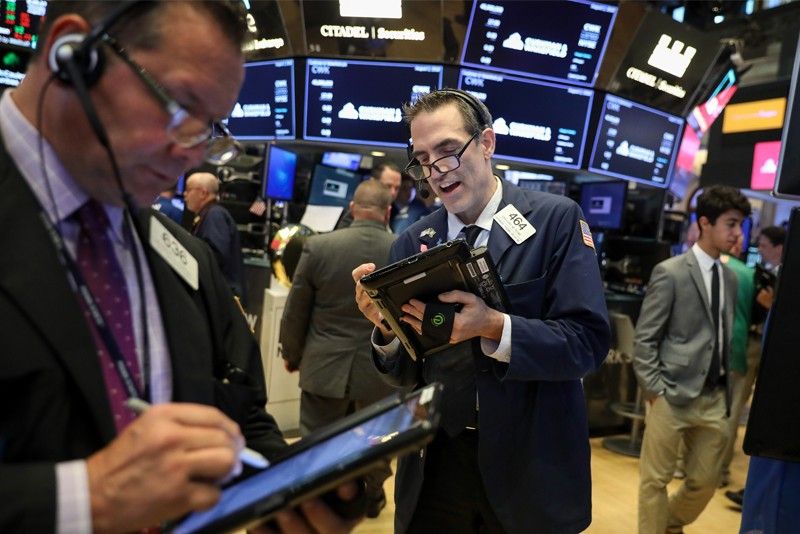Asian markets swing as nervous traders eye trade rows

HONG KONG — Asian markets fluctuated on Tuesday with investors moving cautiously as they await the latest developments in Donald Trump's trade spats with China and Canada.
With US markets closed for the Labor Day holiday, there were few catalysts to drive business though dealers remain nervous after Trump said he wanted to impose fresh tariffs ion a huge swathe of Chinese goods by the end of this week.
There is also growing nervousness about emerging market currencies, with Argentina's peso and the Turkish lira continuing to take a battering.
In early trade Hong Kong was up 0.1 percent and Shanghai added 0.2 percent while Tokyo ended the morning 0.1 percent lower.
Singapore rose 0.2 percent and Seoul was up 0.1 percent, while there were also gains in Wellington, Taipei, Manila and Jakarta. However, Sydney slipped 0.3 percent.
Dealers are now keeping a close eye on Trump's next move after he said last week he wanted to impose tariffs on $200 billion of Chinese imports as soon as public consultation ends on Thursday, adding to the $50 billion already targeted.
Also, US and Canadian officials are still due to resume talks Wednesday on a revised NAFTA deal, after they failed to reach an agreement last week. That led Trump to tweet that he would leave his northern neighbours out of a final pact. Mexico and the US have already struck a deal.
Friday then sees the release of key US jobs data, which could give a clue to the Federal Reserve's plans for raising interest rates.
'Contagion risk'
On currency markets the pound continues to struggle under Brexit uncertainty as British Prime Minister Theresa May faces a rebellion in her own party over a Brexit blueprint.
The Turkish lira was slightly down at 6.6 to the dollar, having enjoyed a modest bounce Monday after the central bank said it would take the "necessary actions to support price stability".
However, it continues to face headwinds as the bank has refused to lift interest rates to combat surging prices, putting pressure on the embattled economy.
The troubles in Turkey and Argentina, which has seen its peso collapse in recent weeks, are rattling markets on fears their crises could spread.
"For now most of emerging market woes can be attributed to country-specific issues," Rodrigo Catril, senior foreign exchange strategist at National Australia Bank, said in a note.
"But with dollar liquidity shrinking as the Fed is expected to continue with it gradual tightening strategy and with President Trump seemingly keen on pursuing its hard line on trade policy, EM contagion risk is still alive and kicking."
Other emerging market and high-yielding currencies were mostly lower. The Indian rupee is wallowing around record lows of 71.2 to the dollar, while the Indonesian rupiah is around levels seen in the Asian financial crisis 20 years ago.
South Korea's won and the Australian dollar were each down about 0.3 percent, while the South African rand lost 0.5 percent and Mexico's peso lost 0.4 percent.
- Latest
- Trending

























